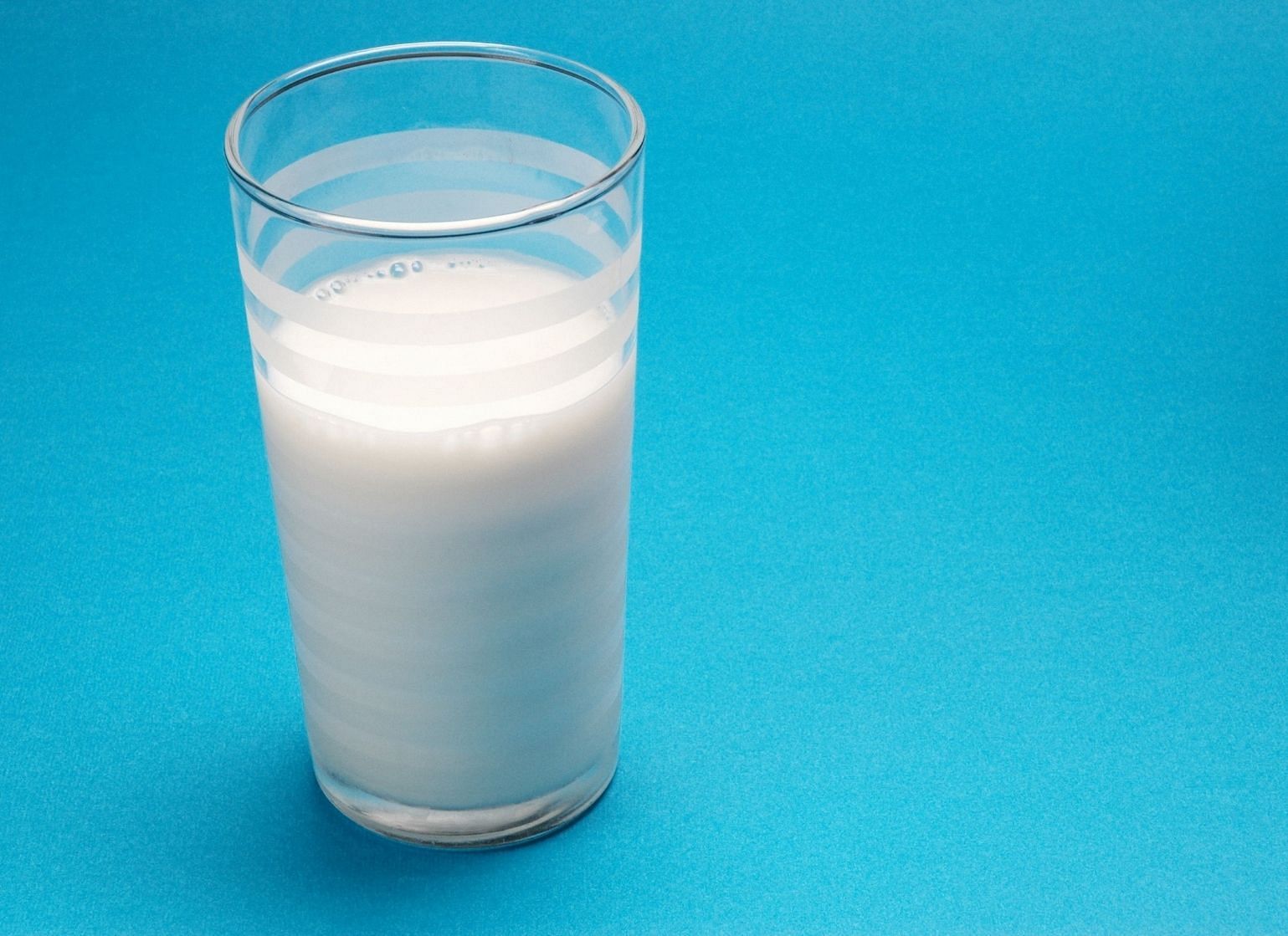9 Surprising and Unknown Camel Milk Benefits That You Should Know

Camel milk has long been a staple of nomadic cultures living in harsh environments like deserts.
Many countries now produce and sell it commercially, and it's also available online in frozen and powdered forms.
You may wonder why some people choose camel milk when there is cow's, plant-based, and animal-based milk readily available.
Here are 9 surprising camel milk benefits you may not be aware of!
What Is Camel Milk?
Camel milk is considered one of the healthiest non-cow milk available, mainly consumed in the desert and middle west regions. Due to its nutritional value and comparatively environmentally friendly production without involving the destruction of large grazing areas, it is now consumed and available worldwide.
According to studies, it is rich in iron, Vitamin A, E, C, proteins, calcium, zinc, potassium, has low fat and cholesterol content, keeping the human body fit and healthy.
Camel Milk Nutrition
One cup of camel milk contains
- 107 calories
- 5.4 grams of protein
- 4.6 grams of fat
- 3 grams of saturated fat
- 11 grams of carbohydrates
- 8 grams of sugar
Additionally, it is also high in several vitamins and minerals, including Vitamin A, B, C, E, Calcium and Kalium
Camel Milk Benefits
Here are some surprising and largely unknown Camel milk benefits for you to explore:
1) Camel Milk Benefits for Skin
Studies suggest camel milk is a rich source of skin-friendly elements such as alpha-hydroxy acids, phospholipids and various effective vitamins and minerals. Alpha hydroxy acids stimulate collagen production and exfoliate the skin to improve its texture, elasticity and natural tonal quality.
The vitamins and minerals provide anti-ageing properties and active antioxidants to the skin, making it moisturised, hydrated, glowing and softer. The phospholipids repair and protect the skin by promoting collagen and elastin secretion. This stimulates healing and immune responses in the lower skin layers.
Also Read: Vitamins for Glowing Skin
2) Camel Milk for Weight Loss
According to studies, camel milk has fewer calories, fat and cholesterol content than other milk types. It makes it suitable for your weight loss journey.
The low-fat content reduces the chances of gaining weight and obesity. Moreover, it contains antioxidants, which help get rid of toxins and boost overall body metabolism, contributing to weight loss.
3) Camel Milk for Boosting Immunity
Studies suggest camel milk contains lactoferrin, camel whey and immunoglobulin proteins that boost the immune system to fight various disease-causing organisms and free radical damage.
Lactoferrin integrates antibacterial, anti-fungal, anti-viral, anti-inflammatory and antioxidant properties, which inhibit the growth of harmful organisms that can cause severe infections. It promotes better health for conditions such as autoimmune disorders.
4) Camel Milk Benefits for Diabetes
According to studies, camel milk is beneficial for lowering blood sugar and improving insulin sensitivity for both type 1 and type 2 diabetes. Camel milk increases insulin levels in patients with diabetes and might also contribute to glycemic control. Further, the high levels of zinc contain anti-diabetic properties to help regulate blood sugar levels.
Studies also suggest that camel milk is rich in healthy nutrients and is an effective replacement to avoid insulin injections gradually. But, one must consult a doctor and not self-medicate.
5) Camel Milk Benefits for Brain Disorders
Various studies have shown promising results of camel milk aiding those with brain conditions such as autism, Parkinson’s, and Alzheimer’s. It helps in improving behavioural conditions that encompass social interactions and repetitive behaviours.
Intake of camel milk has been shown to positively impact passive (docile) and unusual (hysteric) symptoms to some extent so that behavioural irregularities can be controlled slowly over the years.
6) Camel Milk Benefits for Lactose Intolerance
Camel milk contains less lactose as compared to cow milk. This makes it a better alternative for individuals with lactose intolerance. Also, according to studies, it has a different protein profile and antidiarrheal properties than cow milk, making it the best available option for those with allergies to cow’s milk.
7) Camel Milk Benefits for Growth
As per a Study, camel milk is highly nutritious and loaded with beneficial minerals and vitamins compared to cow’s milk and even the breast milk of humans. As a result, it is extremely effective in promoting growth and development.
It is a rich source of height- and growth-promoting compounds, such as zinc, iron, calcium, and potassium, that make bones stronger.
8) Camel Milk Benefits for Hair and Nails
Studies suggest camel milk constitutes higher content of Omega 3 essential fatty acids. These healthy fats and proteins are beneficial for nourishment, moisturisation and maintaining a healthy volume of hair from the inside out. Camel milk also contains high levels of zinc and iron, which are essential for healthy nails.
9) Camel Milk Benefits for Hepatitis and Other Liver Issues
As per studies, camel milk supplements can help manage both Hepatitis B and Hepatitis C. A special fat constituent and the high level of ascorbic acid present in camel milk helps in soothing the liver and improving liver functioning.
Camel Milk Vs Cow Milk
Camel milk is similar to whole cow's milk in terms of calorie, protein, and carb content, but it contains less saturated fat and contains more vitamin C, B vitamins, calcium, iron, and potassium.
Here are simple pointers why Camel milk is better than Cow milk -
- It has higher copper, iron, zinc, potassium, sodium, and magnesium concentrations.
- It is also richer in vitamins B2 and A.
- It contains three times as much Vitamin C as cow milk.
- Camel milk has more unsaturated fatty acids.
- It is lower in cholesterol than cow milk.
- As it is low in lactose, lactose-intolerant people can consume and digest it more easily.
- Camel milk has more antibacterial and antiviral properties.
Camel Milk Side Effects
Although it is comparatively more healthy and nutritious, as per studies, incorrect and raw consumption of camel milk can cause some side effects, which are as described below:
- When consumed in an unpasteurised form, it can expose you to a number of animal-based harmful pathogens.
- These pathogens may cause various infections, kidney failure and, in rare cases, death.
- Those with compromised immune systems can be easily affected by raw camel milk. It can cause food poisoning and other severe health problems.
Healthy Alternatives of Camel Milk
If you have a milk allergy and are looking for an alternative, you can try:
- Almond milk
- Soy milk
- Oat milk
- Rice milk
Summing Up on Camel Milk Benefits
Since ancient times, camel milk has been part of specific nomadic populations' diets. Recently, it has gained popularity as a healthy food in developed countries.
Research shows that people with lactose intolerance and allergies better tolerate camel milk than cow's milk. In addition, it may improve some behavioural and neurodevelopmental conditions like autism and lower blood sugar and boost immunity.
You can purchase camel milk online in either powdered or frozen form if you can't find it locally.
Faqs
1) Why Camel Milk Is So Expensive?
Camel milk is expensive to produce due to several factors; the most important factor is that you cannot milk a mother without her calf, meaning it takes twice as much animal husbandry to produce each litre. It is hard to remove milk in comparison to other animals. Feed and grain are also expensive. This justifies its high cost.
2) What Is Special About Camel Milk?
Camel milk is rich in antioxidants, which help prevent damage to your cells that can lead to serious diseases such as cancer, diabetes, and heart disease. It's also packed with vitamin A, vitamin B, and minerals.
3) Which Animal Milk Is Best?
This is still debatable because each animal milk has its share of benefits. It varies from person to person. It's better to consult your nutritionist and decide which animal milk suits your body.

